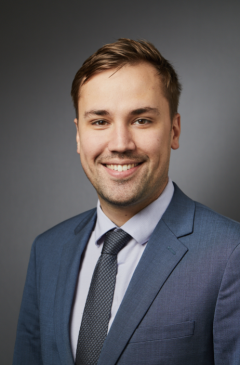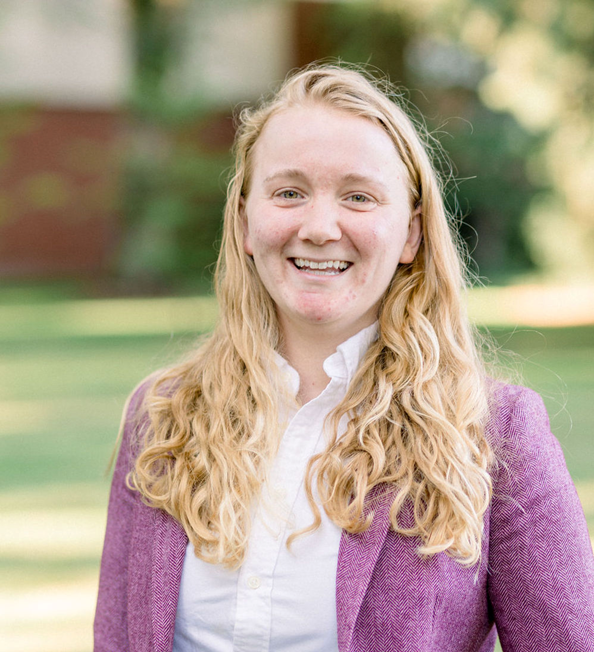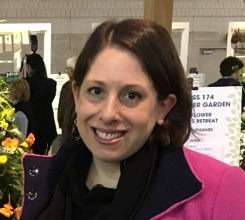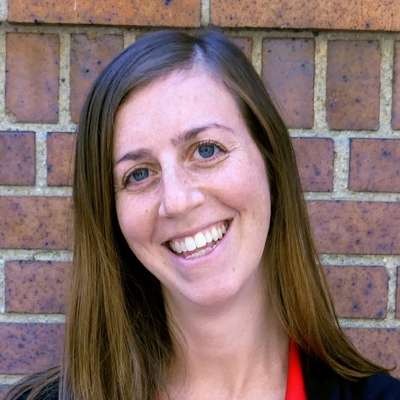Program Overview. This 2-year Postdoctoral Training Program in Behavioral Geriatrics, sponsored by the National Institute on Aging (NIA), develops independent investigators capable of conducting research to improve the quality of life and quality of care of older adults. The Program is Co-led by Cary Reid, MD, PhD, Director of the Translational Research Institute on Pain in Later Life and Sara J. Czaja, PhD, Director for the Center on Aging and Behavioral Research. Associate Directors of the program are Karl Pillemer, PhD, Professor of Human Development at Cornell University’s Ithaca campus, and Catherine Riffin, PhD, Associate Professor of Psychology in Medicine. Program faculty are drawn from clinical researchers and social scientists from Weill Cornell Medicine and Cornell University (Ithaca). Applications are accepted from both MD and PhD postdoctoral trainees seeking careers at the intersection of biomedical and innovative social/behavioral approaches to improve care and care outcomes in older adults. The T32 Behavioral Geriatrics program is committed to identifying and supporting individuals from underrepresented groups, including racial and ethnic minorities, women, LGBTQIA+, individuals with disabilities, and individuals from disadvantaged backgrounds.
Eligibility. Applicants must be an MD and/or PhD recent graduate or anticipate having their degree by program start in a relevant field. Applicants must be a U.S. Citizen or permanent resident of the U.S.
Behavioral Geriatrics Description. Behavioral Geriatrics is a scientific discipline that explicitly integrates social/behavioral approaches with biomedical approaches to study clinically significant and pressing issues of aging (e.g., pain, cognitive impairment, polypharmacy, caregiving, end-of-life medical decision-making, bereavement). The distinctive Year 1 Behavioral Geriatrics Didactic Core will cover topics including clinical and psychosocial epidemiology, grant preparation, scientific rigor and reproducibility, health services research, and trial design as related to the study of older adults.
Mentorship. Co-Mentored research in Year 1, culminating in a Year 2 research project for which the Trainee serves as PI under Co-Mentor supervision. Active areas of research and corresponding faculty include:
- Pain management in older adults (Reid, Wethington, Loeckenhoff, Riffin, Ong, Pillemer)
- Palliative and end-of-life care (Phongtankuel, Reid, Shalev, Adelman)
- Family dynamics and caregiving (Czaja, Pillemer, Riffin, Adelman)
- Technology-based interventions (Czaja, Estrin)
- Mental-health disorders (Sirey, Kiosses)
- Behavioral intervention development and testing (Czaja, Riffin, Reid, Kiosses, Sirey, Ong)
- Elder abuse (Lachs, Rosen, Pillemer)
- Social isolation/integration (Wethington, Czaja, Reid)
- Positive affect, stress, and health (Ong, Reid)
- Bereavement and psychological trauma and aging (Prigerson)
- Decision making (Loeckenhoff)
- Administrative claims data (Bao)
- Deprescribing (Goyal)
For a complete mentor list, contact Patty Kim at pak2020@med.cornell.edu. Trainees will be integrated into a large, ‘research-ready’ network of New York City organizations serving ethnically diverse older adults. We foster multiple opportunities for trainees to network with mentors and others within our aging networks.
How to Apply. If you are interested in applying for this postdoctoral opportunity, please email our team at T32Geriatrics@med.cornell.edu with the following: 1) Copy of your CV; and 2) Cover letter detailing your interest in the program and as well as describing why you might be a good fit for our program.
Deadline. Applications are currently being accepted for the 2024-2025 cohort that would start September 2024. Candidates will be selected on a rolling basis.
Current Fellows:
William McDonald, MD

Dr. McDonald is a T32 Fellow in Geriatrics at New York-Presbyterian Weill Cornell with a special interest in polypharmacy. As a Chief Resident at the Yale Primary Care-Internal Medicine Residency in New Haven, Connecticut, he created an interdisciplinary Deprescribing Clinic at a Federally Qualified Health Care Center that focused on strengthening the relationship between the pharmacist and the patient. He is now excited to work with Dr. Parag Goyal and his team on their efforts to improve patient wellbeing through careful review of their medications.
Irina Mindlis, MPH, PhD

Dr. Irina Mindlis is a T32 postdoctoral associate in Behavioral Geriatrics at Weill Cornell Medicine’s Division of Geriatrics and Palliative Medicine. She completed her PhD in Psychology at The Graduate Center of the City University of New York (Health Psychology and Clinical Science Training Area), and her Master of Public Health in Epidemiology at the Icahn School of Medicine at Mount Sinai. She completed her clinical internship (residency) at Mount Sinai Services/Elmhurst Hospital. Her primary research interests involve the psychosocial adjustment to illness among older adults, especially in the context of multimorbidity. She is especially interested in how the compounding of difficulties that comes with multimorbidity and aging affects isolated and underserved populations. Her dissertation focused on identifying underlying pathways in the relationship between multimorbidity and depressive symptoms among older adults, including disease- and treatment-related stressors, and poor social support. Her long-term research interests involve identifying mechanisms of poor adjustment to chronic illness among older adults, with the goal of developing interventions aimed at preventing and ameliorating negative outcomes such as late life depression.
Madeleine Hardt, PhD

Dr. Madeleine Hardt is a T32 postdoctoral associate in Behavioral Geriatrics at Weill Cornell Medicine’s Division of Geriatrics and Palliative Medicine. Madeleine earned her PhD in clinical psychology with a health emphasis at the University of Missouri – Kansas City. She completed her clinical internship in behavioral medicine at Yale School of Medicine, where her training emphasized working on interdisciplinary teams within palliative medicine, chronic pain, oncology, cardiovascular medicine, and transplant. Madeleine’s extensive health psychology training complements her program of research. She is interested in prevention and early intervention development with patients and caregivers affected by chronic or life-limiting illness. She centers her work on understanding psychological mechanisms associated with health behaviors and outcomes in the context of significant stress and loss. Her dissertation examined the role of emotion regulation in the relationship between grief severity and health behavior engagement within the first five years of bereavement. Madeleine’s long-term research goals involve advancing our understanding of the effect of bereavement on caregiver health behaviors and outcome trajectories via the implementation of sustainable, early interventions promoting resiliency and well-being for patients and caregivers in the context of end-of-life care.
Atami De Main, PhD

Dr. Atami De Main is a T32 postdoctoral associate in Behavioral Geriatrics at Weill Cornell Medicine’s Division of Geriatrics and Palliative Medicine. She is a geropsychiatric and mental health nurse with a focus on community and public health. She received her Ph.D. in Nursing from The University of Texas at Austin, and her master’s degree in Mental Health from Johns Hopkins Bloomberg School of Public Health. Her research focuses on the impact of social determinants of health on mental and behavioral health outcomes in older adults, late-life suicidality, and self-management of multiple chronic conditions in vulnerable and underserved populations. She is the recipient of the Dean’s Initiative Diversity Grant to support her T32 Research Training.
Shelbie Turner, MPH, PhD

Dr. Shelbie Turner is a T32 postdoctoral fellow in Behavioral Geriatrics at Weill Cornell Medicine’s Division of Geriatrics and Palliative Medicine. Shelbie completed her Ph.D. in Human Development and Family Sciences at Oregon State University and her Master of Public Health at Virginia Tech.
Shelbie is interested in how people think about, anticipate, and plan for their future older adulthood. Her research shows that people who interact closely with older adults – such as through dementia caregiving – have unique windows into old age that shape both how they think of their own future older selves and what they do (or don’t do!) to achieve who they hope to be in older adulthood or avoid who they fear becoming. For her dissertation, she received NIH/NIA funding to conduct the ACHIEVE Study, a 30-day micro-longitudinal study of middle-aged dementia caregivers’ views on their own aging and subsequent physical activity goal pursuit. She found that increases in negative caregiving experiences made caregivers’ think worse of their own future older selves and that those negative thoughts were associated with reductions in their physical activity goal pursuit.
As a postdoctoral fellow at Weill Cornell, Shelbie is excited to continue studying dementia caregivers’ views on aging, physical activity, and connections between the two. In her spare time, Shelbie is learning how to play tennis! If anyone has a tip for how to improve her serve, she is all ears.
Xin Yao Lin, PhD

Dr. Xin Yao Lin is a T32 post-doctoral associate in Behavioral Geriatrics at Weill Cornell Medicine’s Division of Geriatrics and Palliative Medicine. She completed her PhD in Psychology at Brandeis University. Her research interests involve technology use, social relationships/support, health/health behavior, and well-being in the context of adult development, aging, and caregiving, using quantitative (daily, longitudinal, experimental) and qualitative methods. Her dissertation examined social support and physical activity as mechanisms in the relationship between social technology use and well-being. Xin’s dissertation was funded by various sources, including National Institute on Aging (NIA)’s Boston Roybal Center for Active Lifestyle Interventions. Her long-term research goals involve launching longitudinal intervention studies to examine behavioral and psychosocial factors that can improve health and how technology can promote social connectedness, health, and health behaviors of diverse and underserved older adults and their caregivers.
Past Fellows:
E-Shien (Iggy) Chang, PhD

Dr. E-Shien (Iggy) Chang was a T32 post-doctoral associate in Behavioral Geriatrics at Weill Cornell Medicine’s Division of Geriatrics and Palliative Medicine. A social scientist by training, Iggy’s research program seeks to characterize and dismantle mechanisms of elder abuse and neglect across diverse cultural, family, and care settings. Her dissertation work was among the first to systematically examine the role of ageism, operating at both structural and individual levels, in driving elder abuse perpetration. She has also served as a research contributor to WHO’s Global Report on Ageism. In addition, Iggy has an invested interest in documenting and reducing racial/ethnic health disparities in aging. Iggy’s dissertation work was supported by the Yale Center for Clinical Investigation Multidisciplinary Training in Translational Research Fellowship, the Samuel and Liselotte Herman Fellowship at Yale School of Public Health, and Taiwan Ministry of Science and Technology Dissertation Fellowship. Iggy completed her PhD in Social and Behavioral Sciences at Yale School of Public Health and her MA in Social Sciences (Sociology) at University of Chicago.
Daniel Shalev, MD

Dr. Daniel Shalev was a T32 post-doctoral associate in Behavioral Geriatrics and an instructor in medicine and psychiatry at Weill Cornell Medical College. He earned his MD from Weill Cornell Medicine and completed his psychiatry residency at Columbia/The New York State Psychiatric Institute where he was chief resident. He subsequently completed a consultation-liaison psychiatry fellowship at Columbia University Irving Medical Center/The New York State Psychiatric Institute and a hospice and palliative medicine fellowship at the bi-campus NewYork-Presbyterian Cornell and Columbia program. He is board certified in psychiatry with board eligibility in consultation-liaison psychiatry and hospice and palliative medicine. He maintains clinical practice in both palliative care and psychiatry and is an attending physician in both specialties at Weill Cornell Medicine. Dr. Shalev’s research is on the integration of mental health services into hospice and palliative care. His prior work in this domain includes foci on workforce development and clinician training, models of care, and end-of-life care for individuals with serious mental illness. He is the recipient of a Weill Cornell Medicine JumpStart Research Career Development Award supporting his research on barriers and facilitators to high quality palliative care among individuals with serious mental illness and comorbid life-limiting medical illness.
Jamaica “Jamie” Robinson, MPH, PhD

Dr. Jamaica (Jamie) Robinson was a T32 post-doctoral associate in Behavioral Geriatrics in the Center for Research on End-of-Life Care at Weill Cornell Medicine’s Division of Geriatrics and Palliative Medicine. She completed her PhD in the department of Epidemiology at the University of Washington, where her dissertation work characterized cross-level interactive effects of individual- and neighborhood-level social determinants of health on quality of life following a cancer diagnosis. Over the last twelve years, Jamie’s research has increasingly explored the health impacts of food insecurity and other unmet needs in medically underserved populations, especially in underserved advanced-stage cancer patients. This focus led her to Weill Cornell to seek additional training in meaningfully assessing, with an emphasis on community-based assessment methods, how unmet basic needs affect the end-of-life care experiences of underserved cancer patients and their caregivers.
David Hancock, PhD

Dr. Hancock was a T32 post-doctoral associate in Behavioral Geriatrics at Weill Cornell Medicine’s Division of Geriatrics and Palliative Medicine. He completed his PhD in Experimental Psychology – Social Psychology emphasis at Texas Tech University. He has previously completed another postdoctoral appointment at the University of Massachusetts Amherst in the Department of Psychological and Brain sciences, Social Psychology program. His dissertation focused on examining the intersection of age, race, gender, and sexual identity on stereotypes and prejudice, utilizing a social cognitive approach. His dissertation was funded by a grant from the Society for the Psychological Study of Social Issues. His research focuses on minority health and aging. Past research has examined social determinants of alcohol use and alcohol use among sexual minority older adults. Other projects have examined stereotype content of older adults, applying an intersectional perspective. His research agenda includes gaining a deeper understanding of intersectional older adult groups and health and behavioral outcomes, such as depression, abuse, and quality of life, especially in informal and managed care settings.
David Camacho, PhD
Dr. Camacho was a T32 post-doctoral associate in Behavioral Geriatrics at Weill Cornell Medicine’s Division of Geriatrics and Palliative Medicine. He completed his PhD in Social Work in Advanced Clinical Practice at Columbia University. His dissertation examined the relationship between Loneliness and Chronic Pain among racially/ethnically diverse community dwelling older adults in the US. David’s dissertation was supported by Council on Social Work Education Minority Fellowship Program. His research centers around the physical and mental health of ethnic and sexual minority older adults in the United States and Latin America. His research agenda includes gaining a deeper understanding of Loneliness, Depression and Chronic Pain and Cognitive Impairment among diverse older adults. David seeks to identify and accelerate the implementation of promising interventions into real-world settings. David’s research is informed by his extensive direct clinical practice as a bilingual and bicultural clinical social worker. David has held multiple clinical and research appointments across a variety of community settings in Los Angeles and New York.
Francesca Falzarano, PhD

Dr. Falzarano was a T32 post-doctoral associate in Behavioral Geriatrics at Weill Cornell Medicine’s Division of Geriatrics and Palliative Medicine. She completed her PhD in the department of Applied Developmental Psychology at Fordham University, where her dissertation work evaluated how chronic stressors associated with informal dementia caregiving impacts cognitive functioning. She also has also conducted work examining the experiences of a growing population of long-distance caregivers. Francesca’s graduate-level research focused on the links among cognition, stress, and well-being in dementia caregivers, which led her to Weill Cornell to receive additional training in developing and testing innovative technologies aimed at improving the emotional well-being of individuals with dementia and their family caregivers.
Sarah Ramer, MD, MS

Dr. Ramer was an instructor in medicine at Weill Cornell Medicine and a postdoctoral fellow in the behavioral geriatrics T32 in the Division of Geriatrics and Palliative Medicine. She is also a physician board-certified in internal medicine, pediatrics, and adult nephrology and board-eligible in hospice and palliative medicine. Her broad research interest is in the integration of palliative care and, more generally, patient-centered care into the practice of nephrology. She received her MD and MS in clinical research methods from the University of Pittsburgh School of Medicine, then completed a residency in internal medicine and pediatrics at Rutgers New Jersey Medical School and fellowships in nephrology and palliative medicine at Icahn School of Medicine at Mount Sinai.
Heather Derry, PhD

Dr. Derry was a T32 post-doctoral associate in Behavioral Geriatrics at Weill Cornell Medicine’s Division of Geriatrics and Palliative Medicine. She completed her PhD in psychology at the Ohio State University, where her dissertation work evaluated how physical fitness impacts cognitive function among post-surgery breast cancer survivors. She also completed a clinical health psychology internship at the Louis Stokes Cleveland VA, with training emphases in geropsychology, primary care mental health integration, and women's addictions treatment. Heather's graduate-level research focused on the links among cognition, social relationships, and inflammation, which led her to Weill Cornell to gain expertise in how these areas interface with aging and medical care.
Elissa Kozlov, PhD

Dr. Kozlov was a T32 post-doctoral associate in Behavioral Geriatrics at Weill Cornell Medicine’s Division of Geriatrics and Palliative Medicine. Previously, Elissa completed her clinical internship in geropsychology at the Palo Alto VA Health Care System, and she earned her doctorate from Washington University in both Clinical and Aging and Developmental Psychology. Elissa's past research focused on access to palliative care and barriers to palliative care integration looking specifically at patients' knowledge deficits. For her dissertation, Elissa developed and validated the Palliative Care Knowledge Scale (PaCKS), a brief true/false scale designed to assess knowledge of palliative care in the general population. Her current research focuses on access to mental health care in patients with life-limiting illness and developing mental health and palliative care interventions. She has complementary interests in late life family planning and communication and interdisciplinary training and education.
Keiko Kurita, PhD, MPH

Dr. Kurita was a T32 post-doctoral associate in Behavioral Geriatrics from 2016-2018 and is our first cohort to complete the program. She received her PhD in Psychology (clinical science, specializing in aging) and MPH from the University of Southern California and completed her clinical internship at Duke University Medical Center. Dr. Kurita’s research focuses on the relationship between cognitive function and treatment received by older adults with the goal of improving psychological well-being.
Elizabeth Luth, PhD

Dr. Luth was a T32 post-doctoral associate in Behavioral Geriatrics at Weill Cornell Medicine’s Division of Geriatrics and Palliative Medicine. She received her PhD in Sociology from Rutgers University. Her research focuses on aging, health and end of life. Her dissertation used quantitative methods to analyze inequalities in end-of-life care. She is interested in understanding differences in expectations for and perceptions of end-of-life care by illness population and among groups who are potentially vulnerable to poor-quality care.
Catherine Riffin, PhD

Dr. Riffin is currently an Assistant Professor of Psychology in Medicine in the Division of Geriatrics and Palliative Medicine. Dr. Riffin’s research is focused on understanding how families manage older adults’ chronic health conditions and enhancing family engagement in health care delivery processes. In her current work, she is designing a system for primary care that will identify family caregivers’ needs and link them with community-based resources. Dr. Riffin received her PhD in Developmental Psychology from Cornell University and completed an NIH-funded research fellowship in Clinical Epidemiology and Aging-Related Research at Yale University School of Medicine.

